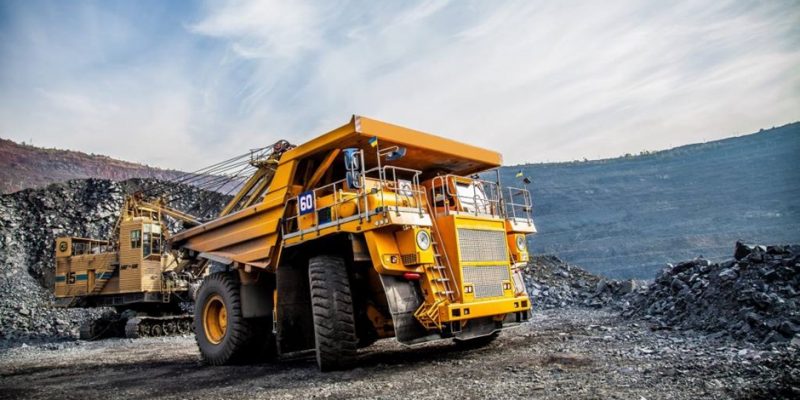Starting your own small mining company can be a rewarding venture, offering substantial returns and the satisfaction of contributing to one of the nation’s most vital sectors. However, the process requires careful planning, a thorough understanding of the industry, and a strategic approach to ensure success. In this article, we’ll discuss the starting point of your journey.
Understanding the Mining Landscape
Before diving into the mining industry, it’s essential to grasp the current landscape. You should start by doing extensive research on the types of minerals that are in demand and identifying potential sites for mining.
Various regions are rich in different minerals, and you should explore these opportunities before making a decision. In some cases, you might have to go for your second option, as you may not be able to get permission for your ideal mining location. Understanding market trends and the locations of rich deposits will guide your decision on what type of mining operation to start and where to establish it.
Legal and Regulatory Requirements
The mining industry is heavily regulated, with stringent legal requirements and environmental guidelines. To start a business, you must obtain the necessary licences and permits from the relevant government authorities. These might include exploration licences, mining leases, and environmental permits.
Familiarise yourself with all the relevant legislation to ensure compliance. Engaging a legal expert who specialises in mining law can be invaluable in navigating this complex landscape. They can help you obtain appropriate licences and other paperwork necessary for running a legal mining business.
Conducting Feasibility Studies
A thorough feasibility study is crucial before embarking on any mining project. This involves geological surveys to assess the quantity and quality of the mineral deposits, environmental impact assessments, and financial modelling. The feasibility study will help you determine whether the proposed mining site is viable and will provide a clear picture of the potential return on investment.
This step is critical in attracting investors and securing funding for your venture. As you prepare your feasibility study, ensure it includes comprehensive data and analysis that demonstrates the project’s potential profitability and risk management strategies.
Securing Financing
Once your feasibility study indicates a viable project, the next step is securing financing. Explore various funding options, including bank loans, private investors, or venture capital. Present a solid business plan that outlines your strategy, financial projections, and risk mitigation measures to potential investors.
Demonstrating a well-thought-out plan and a thorough understanding of the industry will enhance your chances of securing the necessary funds. Without funds, you will be unable to procure the necessary equipment, hire skilled personnel, and cover operational costs, making it essential to secure financial backing.
Acquiring Equipment and Technology
The next step involves acquiring the necessary equipment and technology for your mining operation. Depending on the type of mining, you will need specific machinery, tools, and safety gear.
Opt for modern, efficient, Zokal Safety mining equipment, as well as tools that comply with safety standards. Investing in cutting-edge technology can enhance productivity, reduce costs, and improve safety. Keep abreast of technological advancements in the mining sector to stay competitive.
Building a Skilled Team
A successful mining operation relies on a team of skilled professionals. Once you get the funding, you can work on assembling a team that includes geologists, mining engineers, environmental scientists, and experienced labourers.
The expertise of your team members will be crucial in ensuring efficient and safe mining operations. Investing in the right talent from the outset will pay off in the long run, leading to more effective operations and better problem-solving capabilities.
Ensuring Environmental Compliance
Environmental stewardship is a critical aspect of modern mining operations. If you’re interested in starting a mining business, you must develop a comprehensive environmental management plan to minimise the impact of your activities on the surrounding ecosystem.
This might include measures for waste management, water conservation, and land rehabilitation. Adhering to environmental regulations not only ensures compliance but also enhances your company’s reputation and long-term sustainability.
Developing a Marketing Strategy
While mining is often associated with production, effective marketing is also essential. Develop a marketing strategy to sell your minerals to potential buyers. Besides that, you must establish relationships with refineries, manufacturing companies, and other end-users of your products.
Networking within the industry and participating in trade shows and conferences can help you build a solid customer base. An online presence through a professional website and social media can also attract buyers and investors. A website is also essential for transparency, allowing potential clients and stakeholders to access detailed information about your operations.
Managing Operations and Safety
Efficient management of daily operations is key to the success of your mining company. Implementing robust safety protocols to protect your workers and prevent accidents is a must.
Regular training and drills should also be conducted to ensure that all team members are well-versed in safety procedures. Efficient management also involves regular maintenance of equipment, timely reporting of production metrics, and continuous improvement of operational processes.
Leveraging Technology for Efficiency
Incorporating technology into your mining operations can significantly enhance efficiency and productivity. Consider implementing mining software for resource planning, automation systems for operational tasks, and drone technology for site monitoring.
These technological advancements can streamline processes, reduce human error, and provide valuable data for decision-making. Staying updated with the latest tech trends in mining can give your company a competitive edge.
Focusing on Sustainability and Community Engagement
Sustainability is becoming increasingly important in the mining industry. Adopt sustainable practices that reduce environmental impact and promote social responsibility.
It’s strongly encouraged to engage with local communities and stakeholders to gain their support and address any concerns they may have. Building a positive relationship with the community can lead to a more supportive and cooperative environment, which is beneficial for long-term operations.
Monitoring and Adapting to Market Changes
The mining industry is dynamic, with fluctuating market demands and prices. Regularly monitor market trends and adjust your strategies accordingly. This might involve diversifying your product range, exploring new markets, or adapting your operations to changing economic conditions.
Being proactive and adaptable will help your company remain resilient in the face of market volatility. It can also help you prevent significant financial losses and ensure long-term sustainability.
Conclusion
Starting your own small mining company can be a rewarding and profitable venture if you approach it wisely. With dedication and strategic planning, your mining company can thrive in the vibrant mining industry.













Comments